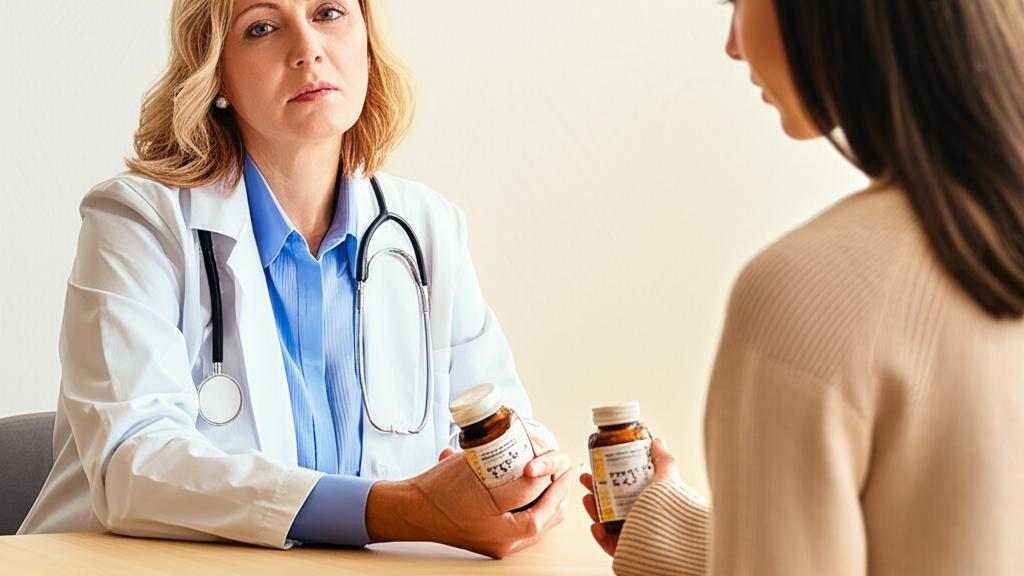A patient sat across from me LAST week, a small bottle of yellow capsules in her hand. “I’ve been feeling so low, doc,” she said, “and my friend swears by this.” She slid the bottle across the desk. It was St. John’s wort. I see this a lot in my practice. When you’re struggling with the heavy weight of depression, it’s completely natural to look for anything that might offer a glimmer of hope, especially something that feels “natural.”
And I get it. The idea of a plant-based remedy is appealing. But as your doctor, my first job is to keep you safe. And with this particular supplement, we need to have a very honest chat.
What Exactly Is St. John’s wort?
St. John’s wort (the scientific name is Hypericum perforatum) is a wild shrub with bright yellow flowers that people have used for centuries. The name comes from the fact that it tends to bloom around the birthday of St. John the Baptist. “Wort” is just an old-timey word for plant.
For years, some studies suggested it might help with mild depression, maybe as much as some standard antidepressants. But here’s the tough part: more recent, high-quality research hasn’t backed that up. For moderate to severe depression, studies show it’s no more effective than a sugar pill (a placebo).
depression is a true medical illness. Please don’t try to manage it on your own. Using an unproven supplement instead of established medical care can be risky. We have safe, effective ways to help you feel better.
One of the biggest issues is that these supplements aren’t regulated by the U.S. Food and Drug Administration (FDA) like prescription drugs are. That means the dose and purity can vary wildly from one bottle to the next. You never quite know what you’re getting.
The Big Concerns with St. John’s wort
Beyond the mixed evidence, my primary concern is safety. This isn’t just a harmless plant. It can cause its own side effects and, more importantly, can seriously interfere with other medications you’re taking.
Some of the side effects people report include:
- Increased sensitivity to sunlight, which can cause bad rashes, especially if you have fair skin.
- An upset stomach or dry mouth.
- Feelings of dizziness or confusion.
- Fatigue or restlessness.
- Sexual dysfunction.
- An increased heart rate or blood pressure.
The good news? There’s no evidence it causes weight gain. But the potential for other issues, especially the ones we’ll talk about next, is very real.
Navigating Drug Interactions: This is Critical
This is the most important part of our chat. St. John’s wort can change the way your body processes dozens of common drugs. It can either make them less effective or, in some cases, dangerously strong.
The most frightening interaction is with other medications that increase a brain chemical called serotonin, like most modern antidepressants (SSRIs). When you mix them, you can get a life-threatening condition called serotonin syndrome. It can happen within hours and causes symptoms like a racing heart, high blood pressure, hallucinations, and a dangerously high body temperature.
Here’s a quick look at some of the most critical interactions. This is NOT a complete list, which is why you must talk to a doctor or pharmacist.
| Type of Medication | Why It’s a Problem |
|---|---|
| Antidepressants (SSRIs, etc.) | Can lead to a massive, dangerous buildup of serotonin in your brain. |
| Birth Control Pills | Can make them less effective, increasing the risk of an unplanned pregnancy. |
| Blood Thinners (like Warfarin) | Can reduce their effectiveness, raising your risk of blood clots. |
| Certain Heart Medications (like Digoxin) | Can make the heart medication less effective. |
| Some HIV/AIDS & Cancer Drugs | Can severely interfere with these life-saving medications, making them fail. |
Who Absolutely Should Avoid This Supplement?
Given the risks, there are some people who should never take this supplement. Period.
- If you are pregnant: It may cause contractions and increase the risk of miscarriage.
- If you are breastfeeding: It can pass into your milk and may cause drowsiness and fussiness in your baby.
- If you are having surgery: You must stop it at least five days before any planned surgery because of how it interacts with anesthesia and other medications.
- If you take any of the medications listed above (and many others!): The risk is just too high.
Take-Home Message
- St. John’s wort is an herbal supplement with very mixed and often poor evidence for treating depression.
- It is not a substitute for proper medical care from a doctor for a serious condition like depression.
- It has many potentially dangerous drug interactions, especially with antidepressants, which can cause life-threatening serotonin syndrome.
- It can make other crucial medications, like birth control and blood thinners, less effective.
- Please, always talk to your doctor or pharmacist before you even consider starting this or any other supplement. Your safety is our top priority.
Navigating your health, especially your mental health, is a journey. You don’t have to guess or do it alone. Let’s work together to find the safest, most effective path forward for you.
St. John’s wort, hypericum perforatum, depression supplement, herbal remedy, serotonin syndrome


